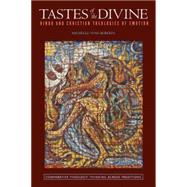Tastes of the Divine Hindu and Christian Theologies of Emotion
, by Voss Roberts, Michelle- ISBN: 9780823257386 | 082325738X
- Cover: Hardcover
- Copyright: 6/16/2014
The intense poignancy of aesthetic experience has impelled theorists to view it as theologically significant. By designating basic human emotions as rasa, a word that connotes juice, taste, flavor, or the essence of a thing, Indian aesthetic theory conceptualizes emotional states as something to be savored. At their core, emotions can be tastes of the divine. In this book, the methods of the emerging discipline of comparative theology enable the author's appreciation of Hindu texts and embodied experiences to illuminate her Christian reflections on aesthetics and emotion.
Three emotions vie for prominence in the religious sphere: peace, love, and fury. Indian literary theorist Abhinavagupta claimed that all aesthetic experience is analogous with union with brahman, and that the aesthetic emotion of peace best approximates this goal of religious experience. Twentieth-century Catholic artistic and liturgical experiments in India explored this religious modality. By contrast, devotees of Krsna have argued that love communicates most powerfully with divinity, an insight that runs parallel with Bernard of Clairvaux's readings of the Song of Songs. Both primary religious emotions, peace and love, arise through embodied practices; yet both also tend to abstract from the material world and marginalize the bodies of the non-elite. The book turns to the other basic human emotions described in rasa theory in order to attend to the material means of evoking and exhibiting emotion. Dalit folk expressions of fury at caste oppression offer a powerful example of participation in the righteous anger of a just God. The implications of this constructive theology of emotion for Christian liturgy, pastoral care, and social engagement are manifold.
Three emotions vie for prominence in the religious sphere: peace, love, and fury. Indian literary theorist Abhinavagupta claimed that all aesthetic experience is analogous with union with brahman, and that the aesthetic emotion of peace best approximates this goal of religious experience. Twentieth-century Catholic artistic and liturgical experiments in India explored this religious modality. By contrast, devotees of Krsna have argued that love communicates most powerfully with divinity, an insight that runs parallel with Bernard of Clairvaux's readings of the Song of Songs. Both primary religious emotions, peace and love, arise through embodied practices; yet both also tend to abstract from the material world and marginalize the bodies of the non-elite. The book turns to the other basic human emotions described in rasa theory in order to attend to the material means of evoking and exhibiting emotion. Dalit folk expressions of fury at caste oppression offer a powerful example of participation in the righteous anger of a just God. The implications of this constructive theology of emotion for Christian liturgy, pastoral care, and social engagement are manifold.







